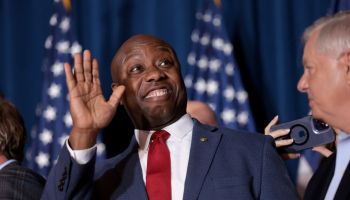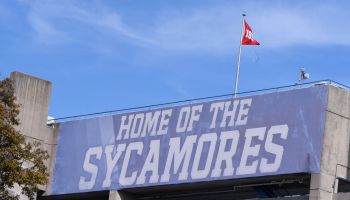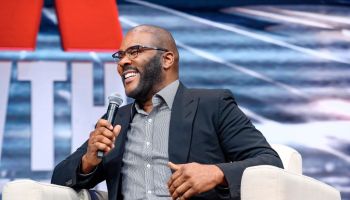Iraq said Thursday it will bar Blackwater Worldwide from providing security protection for U.S. diplomats because its contractors used excessive force, sanctioning a company whose image was irrevocably tarnished by the 2007 killings of 17 Iraqi civilians.
The move will deprive American diplomats of their main protection force in Iraq.
The decision not to issue Blackwater an operating license was due to “improper conduct and excessive use of force,” said Iraqi Interior Ministry spokesman Maj. Gen. Abdul-Karim Khalaf.
Iraqis are bitter over the September 2007 killing of 17 Iraqi civilians in Baghdad’s Nisoor Square. Five former Blackwater guards pleaded not guilty Jan. 6 in federal court in Washington to manslaughter and gun charges in that shooting. A sixth is cooperating with the government.
The Iraqi government has labeled the guards “criminals” and is closely watching the case.
But even before the shooting, Blackwater had a reputation for aggressive operations and using excessive force in protecting American officials, an allegation the company has disputed.
Neither Khalaf nor a U.S. Embassy official gave a date for Blackwater personnel to leave the country and neither said whether they would be allowed to continue guarding U.S. diplomats during the interim.
Anne Tyrrell, a spokeswoman for the North Carolina-based company, said the company had not yet been notified of the Iraqi decision but intended to continue providing security to U.S. officials until instructed otherwise.
“We have received no official communications from the government of Iraq or our customer on the status of those applications or the future of our work in Iraq,” she said.
“Blackwater has always said that we will continue the important work of protecting U.S. government officials in Iraq for as long as our customer asks us to do so, and in accordance with Iraqi law. That has not changed.”
The Iraq decision came just months after a U.S.-Iraqi security agreement approved in November gave the government the authority to determine which Western security companies operate in Iraq.
A joint U.S.-Iraqi committee is drawing up procedures for licensing and regulating security companies under the security agreement and it is unclear when it will finish the process.
“We have followed the procedures to apply for and secure operating licenses in Iraq,” said Tyrrell, the Blackwater spokeswoman. “Any further questions about that the licensing process should be directed to our customer.”
Khalaf said Blackwater employees who have not been implicated in the 2007 shooting have the right to work in Iraq but must find a different employer.
“We sent our decision to the U.S. Embassy last Friday,” Khalaf told The Associated Press in a phone interview. “They have to find a new security company.”
When President Barack Obama was campaigning in 2007, he announced a plan to force Iraq war contractors to follow federal law.
“We cannot win a fight for hearts and minds when we outsource critical missions to unaccountable contractors,” he said at the time.
The State Department relies heavily in Blackwater because it is the largest and best-equipped security company in Iraq. The U.S. extended Blackwater’s contract for a year last spring, despite widespread calls for the company to be expelled because of the Nisoor Square shooting.
But the company has become a lightning rod for Iraqi complaints about the behavior of Western security companies, whose employees were immune from prosecution under Iraqi law until the security agreement took effect this month.
The U.S. Embassy official confirmed it received the government’s decision, saying that U.S. officials were working with the Iraqi government and its contractors to address the “implications of this decision.”
The official made the statement on condition of anonymity under embassy regulations.
In the Sept. 16, 2007 shooting, Blackwater maintains its guards opened fire after coming under attack after a car in a State Department convoy broke down.
The shooting took place around noon in a crowded traffic circle in west Baghdad where U.S. prosecutors said civilians were running errands, getting lunch and otherwise going about their lives.
Prosecutors said the guards unleashed a gruesome attack on unarmed Iraqis, with the dead including young children, women, people fleeing in cars and a man whose arms were raised in surrender as he was shot in the chest.
Twenty others were wounded, including one injured by a grenade launched into a nearby girls’ school. Another 18 Iraqis were assaulted but not wounded, prosecutors said.
Iraqi witnesses said the contractors opened fire unprovoked and left the square littered with blown-out cars.
But the Blackwater guards insist they were ambushed by insurgents. One of the trucks in the convoy was disabled in the ensuing firefight, the guards say.
Blackwater radio logs made available to The Associated Press by a defense attorney in the case last month raised questions about prosecutors’ claims that the guards’ shooting was unprovoked. The log transcripts describe a hectic eight minutes in which the guards repeatedly reported incoming gunfire from insurgents and Iraqi police.
The Blackwater guard cooperating with the government in the case, Jeremy Ridgeway of California, pleaded guilty to one count each of manslaughter, attempted manslaughter, and aiding and abetting.
In his plea agreement with prosecutors, Ridgeway admitted there was no threat from a white Kia sedan whose driver, a medical student, was killed and his mother, in the front passenger seat, was injured.















